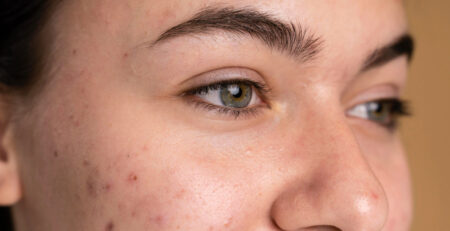Boosting Immunity While Breastfeeding: Vitamins and Their Safety
During cold and flu season, it is especially important for you and your baby to stay healthy. A good place to start is by eating healthy foods that help your immune system.
But sometimes (okay, all the time!) life gets busy, so you might not always have time to make a healthy meal or grab a snack that is high in nutrients.
People who are breastfeeding often think about taking immune-boosting supplements on top of their daily postnatal multivitamin to fill in the gaps.
Is that safe, though?
Here’s what you need to know about taking supplements while breastfeeding to boost your immune system.
A quick look at the best supplements to support immune health during breastfeeding
- Best vitamin D: Pure Encapsulations Vitamin D3 Liquid
- Best probiotic: Bio-Kult Original
- Best omega-3: Nordic Naturals Postnatal Omega-3
- Best protein powder: Seeking Health Optimal Prenatal Powder
Why you need extra nutrition during breastfeeding
Folate, iron, vitamin D, fatty acids, calcium, and other important nutrients are used up in your body during pregnancy.
Also, when you’re breastfeeding, your daily needs for many nutrients are even higher than when you were pregnant. Milk is made by your body from things like choline, iodine, docosahexaenoic acid (DHA), and vitamins A, B12, and D.
This is why people who choose to breastfeed are more likely to have nutrient deficiencies than people who don’t breastfeed.
Many people keep taking their prenatal vitamin while breastfeeding or start taking a postnatal supplement after giving birth.
Most prenatal and postnatal supplements cover most of the nutrients you need during breastfeeding. These include:
- vitamin A
- folate
- vitamin B12
- vitamin B6
- iodine
- iron
- vitamin C
- vitamin D
- vitamin E
- zinc
- selenium
What vitamins and nutrients do you need when breastfeeding?
During a prenatal visit or your 6-week checkup, your doctor will probably talk to you about taking a supplement that is made to meet your needs after giving birth and while you are breastfeeding.
After giving birth, it’s a good idea to keep taking a well-rounded prenatal or start taking a postnatal supplement.
Most prenatal and postnatal supplements don’t have enough vitamin D or choline, which is an important nutrient for the growth and development of a foetus. They also often don’t have enough DHA and eicosapentaenoic acid, two omega-3 fatty acids (EPA).
During breastfeeding, you need more of these nutrients, so it’s important to get enough every day.
Choline
The best prenatal and postnatal supplements have about 50% or more of the choline you need. During lactation, you need 550 milligrammes (mg) per day. choline-rich foods, like egg yolks and fish, are also important to eat.(5).
Vitamin D
Vitamin D is another nutrient that women need a lot of when they breastfeed.
Even though the current daily recommendation for vitamin D during pregnancy and breastfeeding is 600 IU, studies show that a daily intake of 6,400 IU is needed to keep optimal vitamin D levels in breastfeeding parents and breastfed babies.
It’s best to get your vitamin D levels checked so a doctor can give you a dose that will help you reach and keep optimal blood levels while breastfeeding.
Omega-3s
When breastfeeding, doctors also recommend taking extra DHA and EPA, which are essential fatty acids.
DHA and EPA play important roles in foetal development, and getting extra while you’re breastfeeding may help your baby’s brain function as he or she grows up.
Remember that most prenatal and postnatal supplements don’t have DHA or EPA in them.
You may need to take a separate supplement with 250–375 mg of DHA plus EPA in addition to a well-balanced prenatal or postnatal supplement.
Diet matters too
Even though a good prenatal or postnatal supplement can help you get the nutrients you need, it’s also important to keep a healthy, nutritious diet while breastfeeding.
To help you keep your energy levels up and support milk production, the American College of Obstetricians and Gynecologists recommends eating 450–500 extra calories per day while breastfeeding. This means that most women should eat about 2,500 calories per day.
Make sure that most of the calories you eat come from foods that are high in nutrients. These foods include fish, chicken, beans, eggs, and other sources of protein, as well as vegetables, fruits, nuts, and seeds.
Supplements to support immune health while breastfeeding
During pregnancy, your body needs a steady flow of nutrients to stay healthy.
Even though extra nutrients can’t “boost” your immune system, making sure you’re getting the right amount of vitamins, minerals, and macronutrients like protein and healthy fats can support immune function.
During the time after giving birth, you may want to take the following supplements to help your immune system and meet your nutritional needs:
- vitamin D
- omega-3 fatty acids
- probiotics
- protein
To figure out which supplements are right for you, think about whether your diet and prenatal or postnatal vitamins already give you enough of these nutrients. It’s also a good idea to talk to a doctor or nurse you can trust.
Is it safe to use additional immunity-boosting supplements while taking a multivitamin?
If you eat well and take a well-rounded prenatal or postnatal supplement while breastfeeding, you will get most of the nutrients you need.
But, as was said above, you may need to take extra nutrients like vitamin D, choline, and essential fatty acids if they’re not in your prenatal or postnatal supplement or if the supplement you’re taking doesn’t have enough to meet your needs.
Taking extra nutrients in supplement form, you might get more than you need for the day. Some nutrients, like iodine, can make you and your baby sick or even hurt you if you get too much of them.
During pregnancy and breastfeeding, you should also stay away from certain herbs and other common supplement ingredients. That’s why it’s important to know exactly what’s in your prenatal or postnatal supplement and stay away from any that could be dangerous.
Rachel Borton, PhD, is the director of the Family Nurse Practitioner Online Program and an assistant professor of nursing at Bradley University. She reminds us that each mom and baby has a unique health history.
Because of this, you can’t assume that every over-the-counter supplement is safe to take, since your baby will get the supplements through your breast milk.
“There are some supplements that mothers want to stay away from (for their own health safety or because of how they affect milk production),” Borton said. “Their provider will know best what is good for both mom and baby.”
How we choose
We thought about the following things when choosing the best supplements to help your immune system while breastfeeding:
- Nutritional content: We included products that may help keep your immune system healthy and meet the nutritional needs of breastfeeding.
- Ingredients: We looked for supplements that were made with high-quality ingredients and didn’t have any extra or possibly harmful ones.
- Testing: We only included products that have been checked for purity and effectiveness, preferably by an independent group.
- follows the labelling and health claims requirements set by the Food and Drug Administration (FDA); is made in facilities that follow the FDA’s current good manufacturing practises (CGMPs); and
- is made by a company with a good reputation in medicine and that follows ethical, legal, and industry best practises; is made by a company that provides objective measures of trust, like having third-party labs test its supplements;
Healthline’s picks of the best supplements to support immune health during breastfeeding
- $ = under $0.10 per serving
- $$ = $0.10–$0.99 per serving
- $$$ = $1.00–$1.99 per serving
- $$$$ = over $1.99 per serving
Best vitamin D
Pure Encapsulations Vitamin D3 Liquid
- Price: $
- Type: liquid
- Dose: 1 drop provides 1,000 IU of vitamin D
Pure Encapsulations Vitamin D3 Liquid is a good choice for people who want to get more vitamin D. Each drop has 1,000 IU of the nutrient, so you can adjust your dose based on how much vitamin D is already in your prenatal or postnatal supplement and how much you need.
Vitamin D is important to your health and the way your immune system works.
For example, your immune cells need vitamin D to protect your body from pathogens. This nutrient also helps keep inflammation in check.
Health experts say that women who are breastfeeding need a lot more vitamin D than the current recommendation of 600 IU per day.
Most prenatal and postnatal vitamins only have 400–600 IU of vitamin D. Studies show that you need a much higher dose of 6,400 IU per day to keep your vitamin D levels at their best while breastfeeding. This means that you may need to take a vitamin D supplement on top of your prenatal or postnatal supplement.
Always make sure you’re getting the right amount of vitamin D by getting your levels checked.
Pros
- third-party tested
- vegan-friendly
- appropriate for people who cannot tolerate pills
- certified gluten-free
Cons
- People who don’t have enough vitamin D may not need a smaller dose.
Best probiotic
Bio-Kult Original
- Price: $$
- Type: capsules
- Dose: 2 capsules provide 141 mg of probiotics
A healthy immune system depends on a healthy digestive system.
Some studies show that probiotic supplements may help some people’s immune systems work better. However, no studies have shown that probiotic supplements help the immune systems of breastfeeding women.
Still, taking a good probiotic supplement could improve the health of your digestive system as a whole and may help your immune system work well.
Bio-Kult is a high quality probiotic supplement that has 14 probiotic strains, such as Lactobacillus acidophilus PXN 35 and Bifidobacterium longum PXN 30.
Bio-Kult promises that the total number of bacteria in its products will be alive until the end of the shelf life of the product. The National Institutes of Health says that when shopping for probiotics, you should look for this guarantee.
Probiotics are thought to be safe to use while pregnant or breastfeeding, but not everyone needs them. If you have questions about probiotic supplements, talk to a doctor or nurse.
Pros
- guarantees that the CFU count will be alive until the end of the product’s stated shelf life.
- vegetarian-friendly
- shelf-stable
Cons
- probiotics might not be good or necessary for everyone, and it’s not clear if Bio-Kult products are tested by a third party.
Best omega-3
Nordic Naturals Postnatal Omega-3
- Price: $$$
- Type: softgels
- Dose: 2 softgels provide 586 mg of EPA and 456 mg of DHA plus 1,000 IU of vitamin D3
Nordic Naturals Postnatal Omega-3 is made for women who have just had a baby or are breastfeeding. A dose of 2 softgels gives you 586 mg of EPA, 456 mg of DHA, and 1,000 IU of vitamin D3, which is another nutrient that helps the immune system.
EPA and DHA are important for your health and the health of your baby. They also help keep your immune system in check. They help stop inflammation and make immune cells work better.
Most prenatal and postnatal supplements don’t have DHA or EPA, so you might need to take an omega-3 product supplement on its own to get enough of these important fats.
All Nordic Naturals products are tested by a third party to make sure they are pure and high-quality. On the company’s website, customers can also ask for a certificate of analysis (COA) for any and all Nordic Naturals supplements website.
Pros
- third-party tested
- COA available upon request
- certified sustainable by Friend of the Sea
- lemon-flavored
Cons
- relatively expensive
Best protein powder
Seeking Health Optimal Prenatal Powder
- Price: $$$$
- Type: powder
- Dose: 1 scoop, or 46 grams (g), provides 140 calories and 14 g of protein
If you are breastfeeding and are having trouble getting enough protein and calories, you might want to try a protein powder like this one from Seeking Health.
Seeking Health Optimal Prenatal Powder is made for women who are pregnant or who are nursing their babies. In addition to 14 g of protein, the powder gives you vitamin D, zinc, choline, and vitamin C, all of which are important for your immune system and general health.
You can get the powder in vanilla and chocolate flavours. It’s also good for vegetarians and doesn’t have any major allergens, GMOs, or fake colours, flavours, or preservatives.
Seeking Health supplements are made in an NSF-certified facility in the United States. The effectiveness and purity of this supplement have also been checked by a third party.
Pros
- third-party tested
- free of artificial flavors and additives
- free of major allergens
- vegetarian-friendly
- contains several essential vitamins and minerals, including choline
Cons
- not vegan-friendly as the vitamin D3 is derived from sheep’s wool
Are Airborne and Emergen-C safe while breastfeeding?
These supplements have more than 1,000% of the Daily Value for Emergen-C, which is unnecessary since your body can only use a certain amount of vitamin C at a time.
Once your blood is full of vitamin C, any more will leave your body through your urine. So, it’s not necessary to take more than 200 mg at a time in “megadoses.”
These supplements also have other nutrients like vitamins E and A, so if you take them with a multinutrient prenatal or postnatal supplement, you’ll probably get more vitamins and minerals than you need in a day.
Because of these things, it’s best not to take these supplements while you’re breastfeeding.
Frequently asked questions
Can I take vitamin C while breastfeeding?
Yes, vitamin C is safe to take while you’re nursing. But most prenatal and postnatal supplements will give you everything you need, so you usually don’t need to take anything else.
What supplements should I avoid while breastfeeding?
While you’re breastfeeding, you should stay away from certain substances. For example, there isn’t enough evidence to say that herbs like ginseng and ashwagandha are safe to take while breastfeeding.
Before starting any new product, especially one that has herbs in it, it’s best to get advice from a trusted health care professional.
Do breastfeeding vitamins increase milk supply?
Some people swear by things like fennel and mother’s milk tea to increase milk supply, but there isn’t much evidence that they work.
Instead, the best way to keep your milk supply up is to stay hydrated, deal with stress, get enough sleep, make sure you’re getting enough calories, and eat meals that are well-balanced nutritionally snacks.
The bottom line
Making sure you are getting the best nutrition possible while breastfeeding can be good for both you and your baby’s health.
There are a number of high-quality prenatal and postnatal supplements that you can take while breastfeeding to help your immune system and overall health.
If you want to take more supplements, make sure they are safe and that you don’t take more than the recommended daily amount of the nutrients. Before taking any supplements while breastfeeding, you should talk to a doctor or nurse.









Leave a Reply